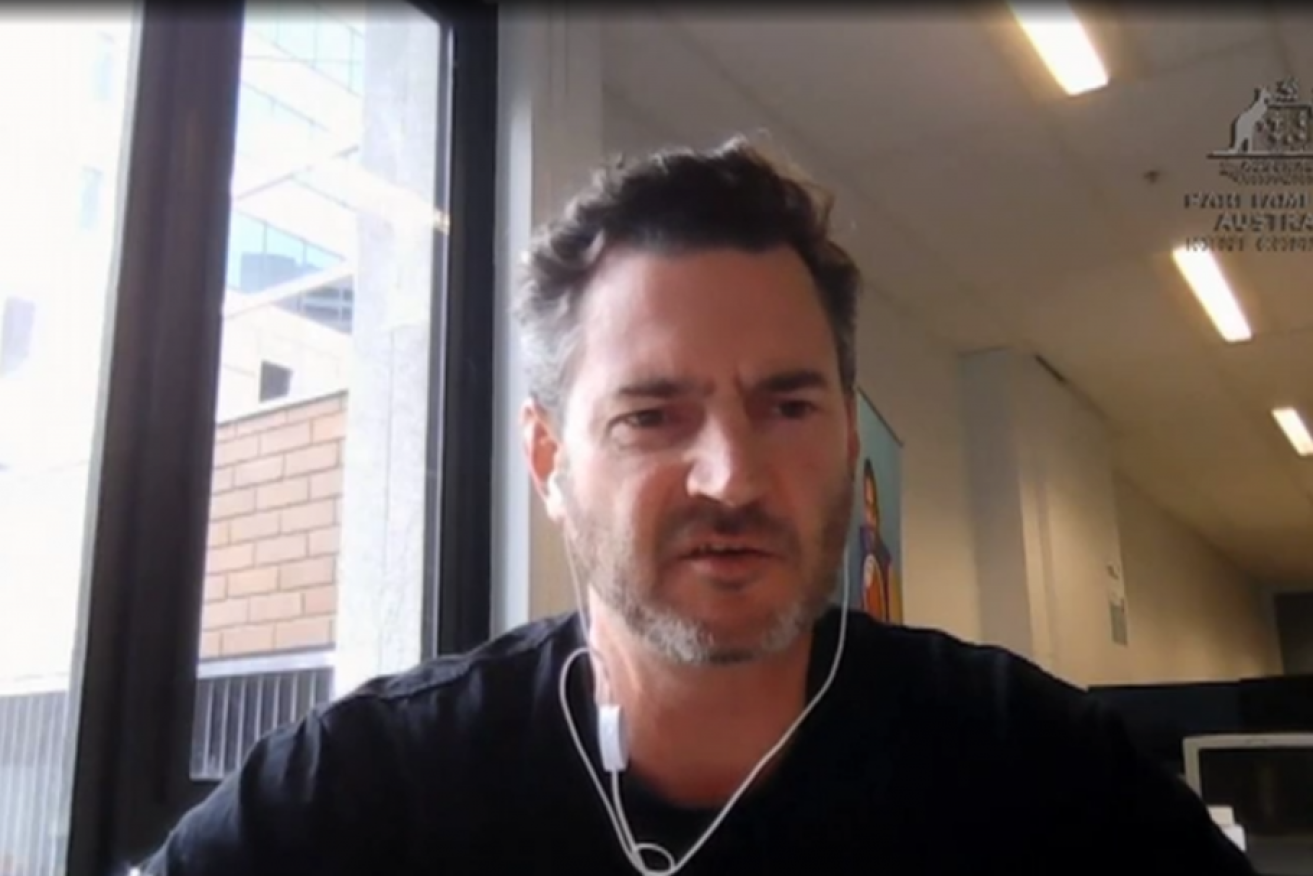‘Strong arm tactics’: Afterpay, Zip accuse banks of forcing mortgage applicants to delete BNPL


Zip Co chief executive Peter Gray has accused the banks of anti-competitive conduct. Photo: APH
Banks are forcing mortgage applicants to delete their buy now, pay later accounts before approving their home loans, Afterpay and Zip Co have claimed.
The allegations surfaced on Monday afternoon when Zip Co boss Peter Gray told a parliamentary committee the biggest reason customers delete their accounts is because their banks are demanding they do it.
Mr Gray said customers can’t get their mortgage approved unless they do.
“[Banks] understand the customer can afford the mortgage,” he said.
“To then impose a restriction on them in continuing to … engage with a BNPL provider, they probably need to disclose why they’re doing that.”
An Afterpay spokesperson later confirmed its customers had complained about deleting their accounts when applying for a mortgage.
“Unfortunately, we have sometimes heard of banks or mortgage brokers telling customers to close their Afterpay accounts in order to get a home loan approved,” the spokesperson told The New Daily in an email.
“Afterpay should not affect your ability to be approved for a home loan.”
Under responsible lending laws, banks are required to work out whether customers can afford to repay their home loans by making inquiries into their spending behaviours and any outstanding debts they might have.
But Mr Gray said the banks viewed BNPL in a “negative light” despite Zip data finding its users have stronger-than-average credit scores.
He said the banks saw BNPL platforms like Afterpay and Zip as competitors because they had disrupted traditional credit cards.
“They’re concerned about the level of engagement our service has with the younger generation,” Mr Gray said.
“We’re clearly a competitive threat in the way we’ve provided clearer, transparent and more competitive solutions to their target market.”
Mr Gray’s comments prompted a bipartisan rebuke of the banks on Monday, with Labor senator Deborah O’Neill referring to the allegations as “strong arm tactics”.
LNP member and committee chair Andrew Wallace likened it to a murky business practice known as “third line forcing”, where customers are forced to use approved suppliers and banned from going through others.
Commonwealth Bank chief executive Matt Comyn will appear before the committee on Tuesday and will likely be asked to respond to the BNPL allegations.
Latest hurdle for home buyers
The practices are just the latest hurdle for people saving to buy a home amid skyrocketing house prices and stagnant wages growth.
Some had hoped the latest lockdowns in Melbourne and Sydney would slow down the red-hot housing market, but on Monday National Australia Bank actually upgraded its house price forecasts through to 2022.
The bank expects house prices to rise by 23 per cent over the next 18 months.
“The better-than-expected recovery in the economy and labour market alongside very low interest rates has supported the strong rebound in the property market,” NAB economists said in a note on Monday.
There has been speculation that the Reserve Bank and the Australian Prudential Regulation Authority (APRA) will step in to curb high prices.
But each regulator has repeatedly poured cold water on that prospect, saying lending standards have not deteriorated and higher housing prices are adding to household wealth, bolstering the COVID recovery.
Regulations to tighten lending standards and cool the market also have negative side effects, with RBA research published on Monday finding the last intervention in 2014 had an anti-competitive effect on lending.
The research paper found that limits on investor and interest-only loans successfully cooled the housing market but helped the big banks at the expense of smaller bank competitors.
“When financial institutions cut interest-only lending, large banks increased their principal and interest lending, while mid-sized banks did not,” the RBA economists concluded.
The Australian Banking Association declined to comment.








